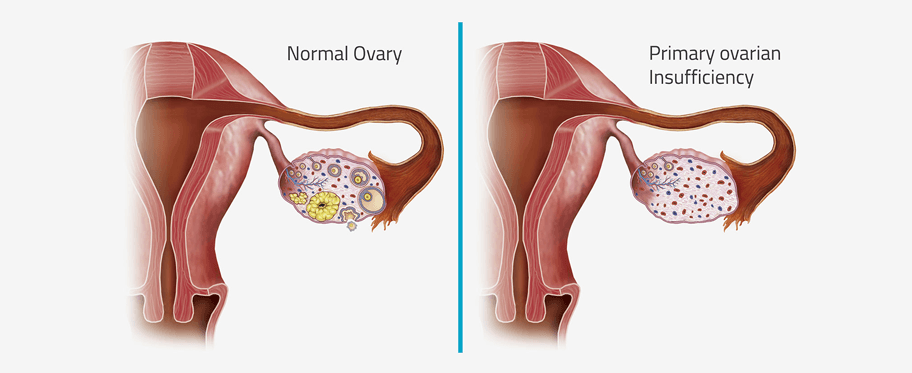Eating Disorders and Infertility: The Hidden Connection in 2025

Infertility can be a silent struggle, and when intertwined with eating disorders, it becomes a complex battle that affects millions. The keyword "infertility eating disorders" shines a light on this often-overlooked link, where malnutrition and psychological factors converge to disrupt reproductive health. In 2025, with 1 in 8 couples facing infertility and 9% of the global population grappling with eating disorders, understanding this connection is more crucial than ever. Questions like "Can eating disorders cause infertility?" and "Does not eating enough cause infertility?" are common, and the answers reveal a path to hope through awareness, treatment, and recovery. This article explores the relationship between eating disorders and infertility, their causes, symptoms, diagnostic approaches, and holistic strategies for healing. Drawing from the latest 2025 research from the CDC, WHO, and fertility experts, this guide empowers you to break the cycle and reclaim your health.
The Intersection of Eating Disorders and Infertility
Eating disorders, such as anorexia nervosa, bulimia nervosa, and binge-eating disorder, involve distorted body image and unhealthy eating behaviors. They affect 9% of the world population, with women aged 18–29 at highest risk. Infertility, the inability to conceive after 12 months of trying, impacts 15% of couples globally. The link between the two is profound: eating disorders disrupt hormonal balance, leading to ovulatory dysfunction in women and sperm quality issues in men. A 2025 WHO report estimates that 20–30% of infertility cases in young women are tied to eating disorders, with malnutrition as a key culprit.
"Can eating disorders cause infertility?" The answer is yes. Disorders like anorexia reduce body fat below 17%, halting menstruation (amenorrhea) and ovulation. Bulimia's binge-purge cycles cause electrolyte imbalances, affecting hormone production. Binge-eating disorder leads to obesity, which raises insulin resistance and disrupts reproductive hormones. "Does not eating enough cause infertility?" Absolutely—calorie restriction lowers estrogen, impairing egg development and uterine lining growth, while in men, it reduces testosterone, lowering sperm count by 20–30%.
This connection creates a vicious cycle: infertility exacerbates body image issues, worsening eating disorders. Breaking it requires integrated care.
How Eating Disorders Affect Reproductive Health
Eating disorders wreak havoc on the endocrine system, disrupting hormones essential for fertility.
In Women
-
Hormonal Imbalance: Low calorie intake suppresses gonadotropin-releasing hormone (GnRH), halting the menstrual cycle. Anorexia causes amenorrhea in 80% of cases, leading to infertility.
-
Ovarian Dysfunction: Malnutrition impairs follicle development, reducing egg quality. Bulimia's electrolyte fluctuations disrupt ovulation.
-
Uterine Effects: Thin uterine lining from low estrogen makes implantation difficult, with 50% of anorexia patients experiencing infertility.
A 2025 study in the Journal of Clinical Endocrinology found that women with eating disorders have a 40% higher infertility rate than the general population.

In Men
-
Testosterone Decline: Calorie restriction lowers testosterone by 20–50%, reducing sperm production and quality.
-
Sperm Abnormalities: Binge-eating or bulimia causes oxidative stress, leading to low motility (30% reduction) and abnormal morphology.
-
Hormonal Disruptions: GnRH suppression affects sperm maturation, with 25% of men with eating disorders showing infertility.
Men are less studied, but 2025 research highlights a 15% infertility link to severe caloric restriction.

Unexplained Infertility
In 20% of cases, eating disorders contribute to "unexplained infertility," where tests show normal results but conception fails due to subtle hormonal shifts.
Symptoms and Warning Signs
Recognizing symptoms early can prompt intervention:
-
In Women: Irregular or absent periods, weight loss/gain extremes, fatigue, hair loss, or cold intolerance.
-
In Men: Low energy, erectile challenges, reduced libido, or mood swings.
-
Shared: Anxiety, depression, obsessive food thoughts, or social withdrawal.
If you suspect an eating disorder amid fertility struggles, consult a specialist. The DSM-5 criteria include persistent food restriction, bingeing, or purging.
Diagnosis: Connecting the Dots
Diagnosing infertility eating disorders involves multidisciplinary evaluation:
-
Medical History: Assess eating habits, weight changes, and fertility timelines.
-
Hormone Testing: Blood tests for estrogen, testosterone, FSH, LH, and cortisol.
-
Semen Analysis: For men, checks sperm parameters.
-
Psychological Screening: Tools like the Eating Disorder Examination Questionnaire (EDE-Q) identify disorders.
-
Imaging: Ultrasound for ovarian or uterine issues.
In 2025, AI-assisted diagnostics analyze hormone patterns, improving accuracy by 25%. Integrated care teams (endocrinologists, psychologists, fertility specialists) diagnose 80% of cases within 3 months.

Treatment Approaches: Healing Body and Mind
Treatment combines medical, psychological, and lifestyle interventions:
-
Nutritional Rehabilitation: Dietitians create balanced plans to restore weight and nutrients, with 70% regaining menstrual cycles within 6 months.
-
Therapy: Cognitive-behavioral therapy (CBT) addresses body image, effective in 60% of cases. Family-based treatment (FBT) helps adolescents.
-
Medications: SSRIs for bulimia or metformin for PCOS-related infertility.
-
Fertility Support: IVF or IUI after stabilization, with 50% success in recovered patients.
-
Holistic Care: Yoga and mindfulness reduce stress, improving outcomes by 15%.
In 2025, telehealth integrates therapy and nutrition, with apps like Recovery Record tracking progress.
Prevention and Long-Term Management
Preventing infertility eating disorders starts with awareness:
-
Early Education: School programs teach healthy body image, reducing risk by 20%.
-
Screening: Annual fertility checks for at-risk groups (e.g., athletes, models).
-
Support Systems: Peer groups and family involvement aid recovery.
Long-term, 70% of treated individuals achieve fertility, but ongoing monitoring is key.

Conclusion: Breaking the Cycle
Infertility eating disorders are a hidden crisis, but 2025 offers hope through integrated care. By addressing "Can eating disorders cause infertility?" and "Does not eating enough cause infertility?" early, you can reclaim your health. Seek help, embrace balanced eating, and explore resources online. Your journey to wellness starts today.










